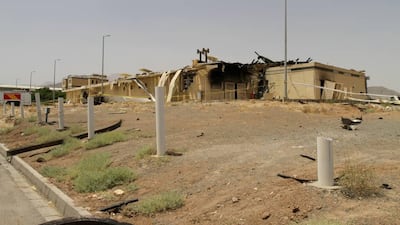Iran's Atomic Energy Organisation said on Sunday that an explosion that damaged the Natanz nuclear facility last month was caused by sabotage.
"Security investigations confirm this was sabotage," spokesman Behrouz Kamalvandi told state news agency Irna.
"But how this explosion took place and with what materials will be announced by security officials in due course."
Iran said after the July 2 incident that it had determined its cause but did not release any more information due to "security concerns".
But the nuclear agency acknowledged the incident caused "significant financial damage" and that the building had been designed to produce "advanced centrifuges".
Natanz governor Ramezan-Ali Ferdowsi said a fire broke out at the site but the country's atomic agency said it caused no casualties or radioactive pollution.
At the end of last month, a member of an influential Iranian security body said it had ruled out drone or missile attacks as the cause of the incident.
"What is certain is that in our view, a drone, missile, bomb or rocket attack is not the case," Mojtaba Zolnour, head of Parliament's national security and foreign affairs committee, told Irna.
"There are traces of an explosion from elements on the inside but since investigations are ongoing, I will not disclose the details."
At the time, Irna published an editorial warning Iran’s foes against hostile action, saying unidentified Israeli social media accounts claimed Israel caused the explosion, which came six days after a blast near a military complex in Tehran.
The defence ministry said a blast in the Parchin area south-east of the Iranian capital was due to "leaking gas tanks".
Iran resumed uranium enrichment at Natanz in September last year after the US withdrew in 2018 from an international accord that gave Iran relief from sanctions in exchange for curbs on its nuclear programme.
Tehran announced in May last year that it would progressively suspend certain commitments under a 2015 landmark nuclear deal with major powers.
Iran has always denied its nuclear programme has any military aim to it.

